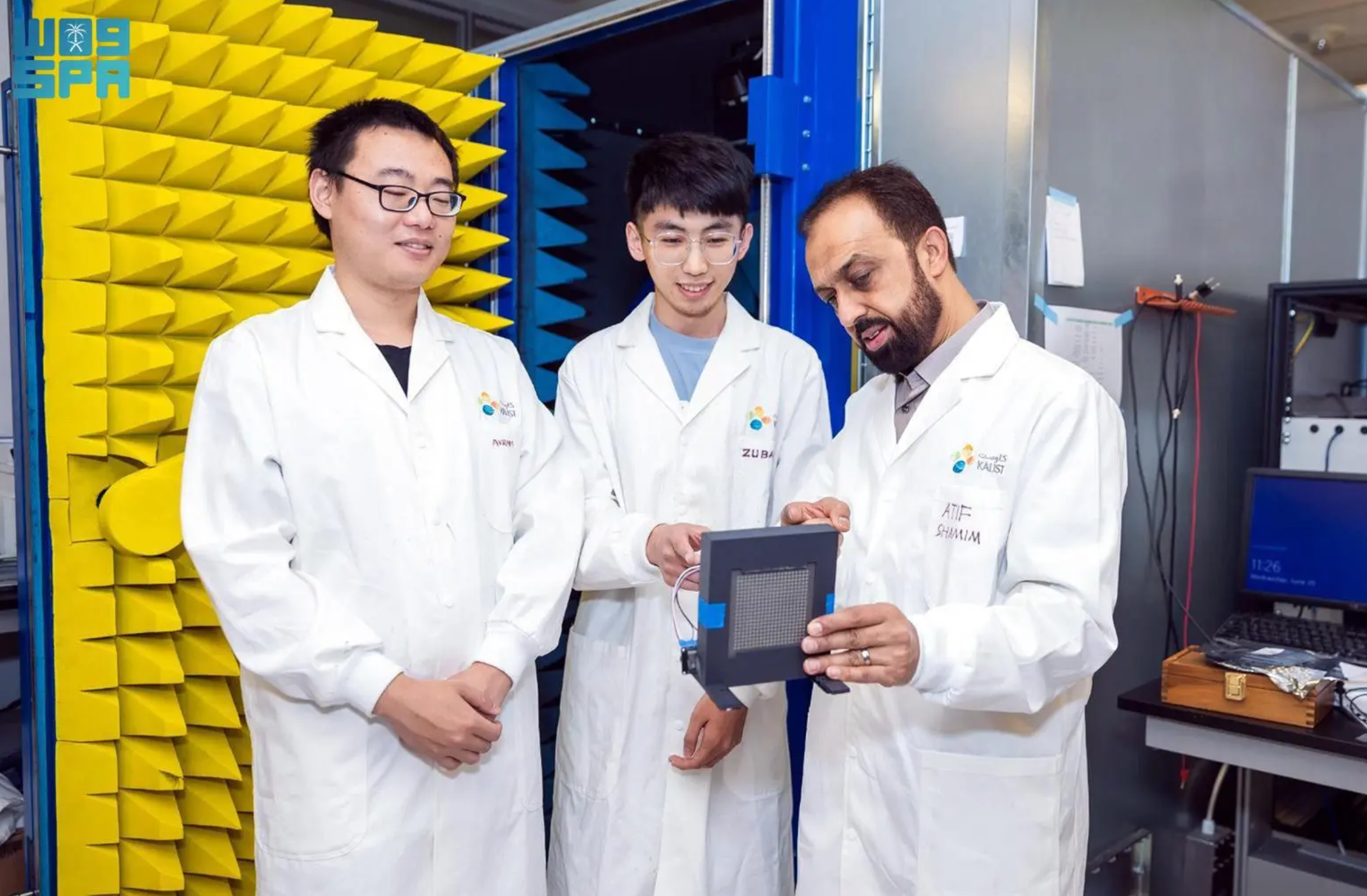
KAUST Pushes Saudi to Forefront of 6G Technologies
More than 50 billion devices will be online by 2025. These include those controlling electric grids for cities and those in your hand for scrolling social media. This number and the amount of data they transmit were impossible ten years ago. The difference between then and now is telecommunications technologies. 5G (fifth generation telecommunications) and soon 6G are making gigabytes of data available at the press of a button just about anywhere in the world.
The collaboration includes the company's continued funding of two KAUST telecommunications programs: the first is investigating free-space optics (FSO), and the other is developing reconfigurable intelligent surfaces (RIS). The industry has identified both technologies as critical for achieving 5G and 6G.
FSO describes communications in which a laser transmits a signal through free space (outer space, air) to a detector without a cable. Moreover, the attenuation increases with higher frequency signals, and 6G has the highest frequency to date (at least 100 GHz). This technology measures the impact of weather on signal transmission in order to build a comprehensive database building, exhaustive database of events in Saudi Arabia that answers why communication outages happen, how often they happen, and how long they happen so they can strategically place their bay stations and set up auxiliary systems for when they fail.
RIS provides another solution to the problem of signal loss. Buildings in urban areas often house base stations on their rooftops. Instead, the array of cells constituting the RIS are electronically reconfigured. Each cell typically comprises metal, insulator and semiconductor layers, which is expected to contribute significantly to enabling access to 6G.
KAUST is positioning the Kingdom as a leader for 6G, attracting companies to invest and scientists to test their research.








